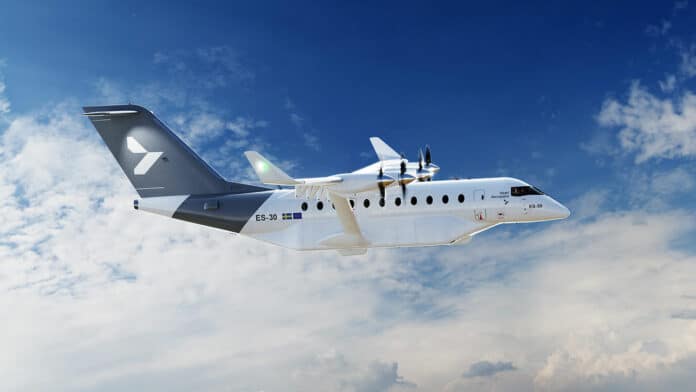The aviation industry seeks to reduce its carbon emissions significantly. Many commercial aviation companies are focusing on SAF (Sustainable Aviation Fuel) as the most practical and promising solution for reducing aviation’s carbon emissions. But there are also some bold players that are taking a step further toward battery-electric alternatives, and Heart Aerospace is one of them.
The Swedish startup is to build a full-scale model of its new ES-30 electric aircraft for charging and taxiing tests at Malmo Airport in southern Sweden. The nonflying demonstrator is to be built under Phase 3 of Sweden’s ELISE project to support a transition to electric and hydrogen-powered aviation.
The project was launched in the spring of 2018 with the aim of coordinating advances in Swedish electric aviation. During the project’s second phase, the intention was to develop a Swedish-made electric aircraft, and the result was the design of the ES-19 regional electric aircraft, with seating for 19 passengers. In the third phase, the goal is to create and test a full-scale ES-30 electric aircraft with seating for 30 passengers, which is equipped with a battery pack.
The latest phase of ELISE is backed by a new SEK 20 million ($1.9 million) grant from the Swedish innovation agency Vinnova. Also taking part in the test activities alongside Swedavia are Heart Aerospace, the airline’s BRA and SAS, and the Swedish battery developer Northvolt. Initial work started in May and is expected to run until the spring of 2025.
The 30-seat ES-30 is expected to offer operators an all-electric range of 200 km (125 miles). The range can be increased dramatically to 800 km (497 miles) if the passenger number is reduced to 25 or if it switches to hybrid-electric propulsion. The electric ES-30 is expected to be in commercial operation in 2028.
